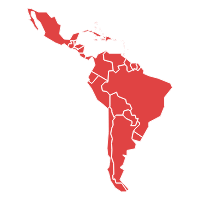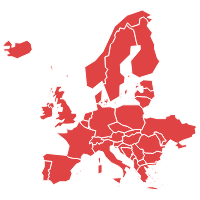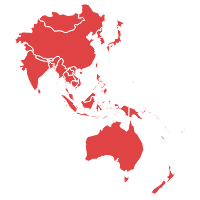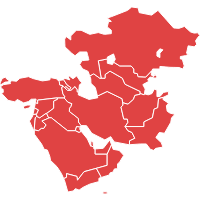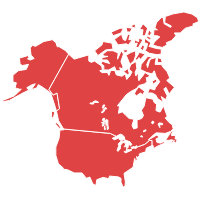- Whole-Bean
- Ground Coffee
- Instant Coffee
- Coffee Pods and Capsules
Coffee Market Size was valued at USD 109.01 billion in 2022 and is poised to grow at a significant CAGR of 4.6% from 2023-2029. Coffee has a revitalizing effect due to the presence of caffeine. It is quite perhaps the most consumed and popular beverage on the planet. In the coming years, the global coffee market has experienced tremendous expansion. Several reasons fuel the worldwide coffee market: rising demand for certified coffee products, consumer acceptance of single-serve coffee brew systems, and ongoing innovation spearheaded by the industry's leading players. For quality and flavor reasons, some customers in wealthy economies are projected to convert from instant coffee to more premium options. Instant coffee was originally seen as a high-end commodity, but it has begun to lose its younger customer base, causing market dynamics to shift. Coffee production is also likely to benefit from attractive government subsidies to encourage cash crop growth. In emerging markets, coffee consumption is increasing, with exports driving the supply chain. In the coming years, coffee will remain a popular dairy beverage in consumer diets worldwide, although consumption levels are unlikely to hit new highs. Furthermore, the introduction of new flavors and perfumes is projected to provide lucrative chances for participants worldwide. Based on product type, the coffee pods segment holds the largest share. The convenient forms of coffee, like coffee pods and capsules and instant coffee, are becoming popular among the masses (especially in North America and Western Europe) to prepare good coffee in the comfort of the home in less time.
Coffee Market Key Developments:
- In July 2021, Food giant Nestle, and U.S. coffee chain Starbucks are extending their partnership to launch ready-to-drink coffee beverages in markets across Southeast Asia, Oceania, and Latin America, the two partners said.
- In June 2021, The Kraft Heinz Company announced that it has reached an agreement to purchase Assan Foods from privately held Turkish conglomerate Kibar Holding in a deal that values the enterprise at approximately $100 million.
Global Coffee Market Summary
Study Period
2024-2030
Base Year
2023
CAGR
3.7%
Largest Market
Europe
Fastest Growing Market
Asia Pacific
Coffee Market Dynamics
The rising restaurant culture in today's young age is largely responsible for the market's rise. Furthermore, the ever-increasing discretionary income flow is said to be another important factor driving up coffee demand worldwide. Throughout the projected period, the market will be driven by the desire for more and better-tasting coffee. Large supermarkets are increasing their ready-to-drink coffee product lines to mirror the diversity of goods available due to rising consumer demand. Some of the main parameters limiting the market's growth are developing urbanization and changing ways of living.
Key Features of the Reports
- The coffee market report provides granular level information about the market size, regional market share, historic market (2018-2022) and forecast (2023-2029)
- The report covers in-detail insights about the competitors overview, company share analysis, key market developments, and their key strategies
- The report outlines drivers, restraints, unmet needs, and trends that are currently affecting the market
- The report tracks recent innovations, key developments, and start-up details that are actively working in the market
- The report provides a plethora of information about market entry strategies, regulatory framework, and reimbursement scenario.

Global Coffee Market Segmentation
By Product Type
By Distribution Channel
- On-Trade (Cafes and Foodservice)
- Off-Trade
- Supermarket/Hypermarket
- Convenience Stores
- Specialist Retailers
- Others
By Geography
- North America
- Europe
- Asia-Pacific
- Latin America
- Middle East and Africa (MEA)
Frequently Asked Questions
The coffee market is projected to expand at a CAGR of 3.7% during the forecast period.
Asia Pacific is the fastest-growing region for coffee market
Starbucks Corporation, Costa Coffee, The Lavazza Group, Dunkin’ Brands, Nestle
| 1. Executive Summary |
| 2. Global Coffee Market Introduction |
| 2.1. Global Coffee Market Taxonomy |
| 2.2. Global Coffee Market Definitions |
| 2.2.1. By Product |
| 2.2.2. By Species Type |
| 2.2.3. By Caffeine Content |
| 2.2.4. By Distribution Channel |
| 2.2.5. By End-User |
| 3. Global Coffee Market Dynamics |
| 3.1. Drivers |
| 3.2. Restraints |
| 3.3. Opportunities/Unmet Needs of the Market |
| 3.4. Trends |
| 3.5. Global Coffee Market Dynamic Factors - Impact Analysis |
| 3.6. Global Coffee Market Competition Landscape |
| 4. Global Coffee Market Analysis, 2018 - 2022 and Forecast, 2023 - 2029 |
| 4.1. Market Analysis, 2018 - 2022 and Forecast, 2023 - 2029 (Revenue, USD Mn) |
| 4.2. Year-over-Year (Y-o-Y) Growth Analysis (%) |
| 4.3. Market Opportunity Analysis |
| 5. Global Coffee Market Forecast, By Product Type, 2018 - 2022 and Forecast, 2023 - 2029 |
| 5.1. Whole Beans |
| 5.1.1. Market Analysis, 2018 - 2022 and Forecast, 2023 - 2029 (Revenue, USD Mn) |
| 5.1.2. Year-over-Year (Y-o-Y) Growth Analysis (%) and Market Share Analysis (%) |
| 5.1.3. Market Opportunity Analysis |
| 5.2. Soluble or Instant Coffee |
| 5.2.1. Market Analysis, 2018 - 2022 and Forecast, 2023 - 2029 (Revenue, USD Mn) |
| 5.2.2. Year-over-Year (Y-o-Y) Growth Analysis (%) and Market Share Analysis (%) |
| 5.2.3. Market Opportunity Analysis |
| 5.3. Coffee Pods |
| 5.3.1. Market Analysis, 2018 - 2022 and Forecast, 2023 - 2029 (Revenue, USD Mn) |
| 5.3.2. Year-over-Year (Y-o-Y) Growth Analysis (%) and Market Share Analysis (%) |
| 5.3.3. Market Opportunity Analysis |
| 5.4. Coffee Capsules |
| 5.4.1. Market Analysis, 2018 - 2022 and Forecast, 2023 - 2029 (Revenue, USD Mn) |
| 5.4.2. Year-over-Year (Y-o-Y) Growth Analysis (%) and Market Share Analysis (%) |
| 5.4.3. Market Opportunity Analysis |
| 6. Global Coffee Market Forecast, By Species Type, 2018 - 2022 and Forecast, 2023 - 2029 |
| 6.1. Coffea Arabica |
| 6.1.1. Market Analysis, 2018 - 2022 and Forecast, 2023 - 2029 (Revenue, USD Mn) |
| 6.1.2. Year-over-Year (Y-o-Y) Growth Analysis (%) and Market Share Analysis (%) |
| 6.1.3. Market Opportunity Analysis |
| 6.2. Coffea Canephora [Robusta] |
| 6.2.1. Market Analysis, 2018 - 2022 and Forecast, 2023 - 2029 (Revenue, USD Mn) |
| 6.2.2. Year-over-Year (Y-o-Y) Growth Analysis (%) and Market Share Analysis (%) |
| 6.2.3. Market Opportunity Analysis |
| 6.3. Others [Catimor, Castillo] |
| 6.3.1. Market Analysis, 2018 - 2022 and Forecast, 2023 - 2029 (Revenue, USD Mn) |
| 6.3.2. Year-over-Year (Y-o-Y) Growth Analysis (%) and Market Share Analysis (%) |
| 6.3.3. Market Opportunity Analysis |
| 7. Global Coffee Market Forecast, By Caffeine Content, 2018 - 2022 and Forecast, 2023 - 2029 |
| 7.1. Regular |
| 7.1.1. Market Analysis, 2018 - 2022 and Forecast, 2023 - 2029 (Revenue, USD Mn) |
| 7.1.2. Year-over-Year (Y-o-Y) Growth Analysis (%) and Market Share Analysis (%) |
| 7.1.3. Market Opportunity Analysis |
| 7.2. Decaffeinated |
| 7.2.1. Market Analysis, 2018 - 2022 and Forecast, 2023 - 2029 (Revenue, USD Mn) |
| 7.2.2. Year-over-Year (Y-o-Y) Growth Analysis (%) and Market Share Analysis (%) |
| 7.2.3. Market Opportunity Analysis |
| 7.3. Half -Caffeinated |
| 7.3.1. Market Analysis, 2018 - 2022 and Forecast, 2023 - 2029 (Revenue, USD Mn) |
| 7.3.2. Year-over-Year (Y-o-Y) Growth Analysis (%) and Market Share Analysis (%) |
| 7.3.3. Market Opportunity Analysis |
| 8. Global Coffee Market Forecast, By Distribution, 2018 - 2022 and Forecast, 2023 - 2029 |
| 8.1. E-Commerce |
| 8.1.1. Market Analysis, 2018 - 2022 and Forecast, 2023 - 2029 (Revenue, USD Mn) |
| 8.1.2. Year-over-Year (Y-o-Y) Growth Analysis (%) and Market Share Analysis (%) |
| 8.1.3. Market Opportunity Analysis |
| 8.2. Super & Hyper Markets |
| 8.2.1. Market Analysis, 2018 - 2022 and Forecast, 2023 - 2029 (Revenue, USD Mn) |
| 8.2.2. Year-over-Year (Y-o-Y) Growth Analysis (%) and Market Share Analysis (%) |
| 8.2.3. Market Opportunity Analysis |
| 8.3. Specialty Stores |
| 8.3.1. Market Analysis, 2018 - 2022 and Forecast, 2023 - 2029 (Revenue, USD Mn) |
| 8.3.2. Year-over-Year (Y-o-Y) Growth Analysis (%) and Market Share Analysis (%) |
| 8.3.3. Market Opportunity Analysis |
| 8.4. Others [Retail Stores. Convinience Stores] |
| 8.4.1. Market Analysis, 2018 - 2022 and Forecast, 2023 - 2029 (Revenue, USD Mn) |
| 8.4.2. Year-over-Year (Y-o-Y) Growth Analysis (%) and Market Share Analysis (%) |
| 8.4.3. Market Opportunity Analysis |
| 9. Global Coffee Market Forecast, By End-Use, 2018 - 2022 and Forecast, 2023 - 2029 |
| 9.1. In-Home |
| 9.1.1. Market Analysis, 2018 - 2022 and Forecast, 2023 - 2029 (Revenue, USD Mn) |
| 9.1.2. Year-over-Year (Y-o-Y) Growth Analysis (%) and Market Share Analysis (%) |
| 9.1.3. Market Opportunity Analysis |
| 9.2. Out-of-Home [Coffee Shop, Hotel, Restaurants, Bakeries, Offices] |
| 9.2.1. Market Analysis, 2018 - 2022 and Forecast, 2023 - 2029 (Revenue, USD Mn) |
| 9.2.2. Year-over-Year (Y-o-Y) Growth Analysis (%) and Market Share Analysis (%) |
| 9.2.3. Market Opportunity Analysis |
| 10. Global Coffee Market Forecast, By Region, 2018 - 2022 and Forecast, 2023 - 2029 (Revenue, USD Mn)Â |
| 10.1. North America |
| 10.1.1. Market Analysis, 2018 - 2022 and Forecast, 2023 - 2029 (Revenue, USD Mn) |
| 10.1.2. Year-over-Year (Y-o-Y) Growth Analysis (%) and Market Share Analysis (%) |
| 10.1.3. Market Opportunity Analysis |
| 10.2. Europe |
| 10.2.1. Market Analysis, 2018 - 2022 and Forecast, 2023 - 2029 (Revenue, USD Mn) |
| 10.2.2. Year-over-Year (Y-o-Y) Growth Analysis (%) and Market Share Analysis (%) |
| 10.2.3. Market Opportunity Analysis |
| 10.3. Asia-Pacific |
| 10.3.1. Market Analysis, 2018 - 2022 and Forecast, 2023 - 2029 (Revenue, USD Mn) |
| 10.3.2. Year-over-Year (Y-o-Y) Growth Analysis (%) and Market Share Analysis (%) |
| 10.3.3. Market Opportunity Analysis |
| 10.4. Latin America |
| 10.4.1. Market Analysis, 2018 - 2022 and Forecast, 2023 - 2029 (Revenue, USD Mn) |
| 10.4.2. Year-over-Year (Y-o-Y) Growth Analysis (%) and Market Share Analysis (%) |
| 10.4.3. Market Opportunity Analysis |
| 10.5. Middle East and Africa |
| 10.5.1. Market Analysis, 2018 - 2022 and Forecast, 2023 - 2029 (Revenue, USD Mn) |
| 10.5.2. Year-over-Year (Y-o-Y) Growth Analysis (%) and Market Share Analysis (%) |
| 10.5.3. Market Opportunity Analysis |
| 10.6. Global Coffee Market - Opportunity Analysis Index, By Product, By Species Type, By Caffeine Content, By Distribution Channel, By End-Use and Region, 2023 - 2029 |
| 11. North America Coffee Market Analysis, 2018 - 2022 and Forecast, 2023 - 2029 (Revenue, USD Mn)Â |
| 11.1. Product Type Analysis 2018 - 2022 and Forecast 2023 - 2029 by Revenue (USD Mn), Y-o-Y Growth (%) and Market Share (%) |
| 11.1.1. Whole Beans |
| 11.1.2. Soluble or Instant Coffee |
| 11.1.3. Coffee Pods |
| 11.1.4. Coffee Capsules |
| 11.2. Species Type Analysis 2018 - 2022 and Forecast 2023 - 2029 by Revenue (USD Mn), Y-o-Y Growth (%) and Market Share (%) |
| 11.2.1. Coffea Arabica |
| 11.2.2. Coffea Canephora [Robusta] |
| 11.2.3. Others [Catimor, Castillo] |
| 11.3. Caffeine Content Analysis 2018 - 2022 and Forecast 2023 - 2029 by Revenue (USD Mn), Y-o-Y Growth (%) and Market Share (%) |
| 11.3.1. Regular |
| 11.3.2. Decaffeinated |
| 11.3.3. Half -Caffeinated |
| 11.4. Distribution Channel Analysis 2018 - 2022 and Forecast 2023 - 2029 by Revenue (USD Mn), Y-o-Y Growth (%) and Market Share (%) |
| 11.4.1. E-Commerce |
| 11.4.2. Super & Hyper Markets |
| 11.4.3. Specialty Stores |
| 11.4.4. Others [Retial Stores. Conviniencce Stores] |
| 11.5. End-Use Analysis 2018 - 2022 and Forecast 2023 - 2029 by Revenue (USD Mn), Y-o-Y Growth (%) and Market Share (%) |
| 11.5.1. In-Home |
| 11.5.2. Out-of-Home [Coffee Shop, Hotel, Restaurants, bakeries, Offices] |
| 11.6. Country Analysis 2018 - 2022 and Forecast 2023 - 2029 by Revenue (USD Mn) Y-o-Y Growth (%) and Market Share (%) |
| 11.6.1. USA |
| 11.6.2. Canada |
| 11.7. North America Coffee Market - Opportunity Analysis Index, By Product, By Species Type, By Caffeine Content, By Distribution Channel, By End-Use and Country, 2023 - 2029 |
| 11.8. North America Coffee Market Dynamics Trends |
| 12. Europe Coffee Market Analysis, 2018 - 2022 and Forecast, 2023 - 2029 (Revenue, USD Mn)Â |
| 12.1. Product Type Analysis 2018 - 2022 and Forecast 2023 - 2029 by Revenue (USD Mn), Y-o-Y Growth (%) and Market Share (%) |
| 12.1.1. Whole Beans |
| 12.1.2. Soluble or Instant Coffee |
| 12.1.3. Coffee Pods |
| 12.1.4. Coffee Capsules |
| 12.2. Species Type Analysis 2018 - 2022 and Forecast 2023 - 2029 by Revenue (USD Mn), Y-o-Y Growth (%) and Market Share (%) |
| 12.2.1. Coffea Arabica |
| 12.2.2. Coffea Canephora [Robusta] |
| 12.2.3. Others [Catimor, Castillo] |
| 12.3. Caffeine Content Analysis 2018 - 2022 and Forecast 2023 - 2029 by Revenue (USD Mn), Y-o-Y Growth (%) and Market Share (%) |
| 12.3.1. Regular |
| 12.3.2. Decaffeinated |
| 12.3.3. Half -Caffeinated |
| 12.4. Distribution Channel Analysis 2018 - 2022 and Forecast 2023 - 2029 by Revenue (USD Mn), Y-o-Y Growth (%) and Market Share (%) |
| 12.4.1. E-Commerce |
| 12.4.2. Super & Hyper Markets |
| 12.4.3. Specialty Stores |
| 12.4.4. Others [Retial Stores. Conviniencce Stores] |
| 12.5. End-Use Analysis 2018 - 2022 and Forecast 2023 - 2029 by Revenue (USD Mn), Y-o-Y Growth (%) and Market Share (%) |
| 12.5.1. In-Home |
| 12.5.2. Out-of-Home [Coffee Shop, Hotel, Restaurants, bakeries, Offices] |
| 12.6. Country Analysis 2018 - 2022 and Forecast 2023 - 2029 by Revenue (USD Mn) Y-o-Y Growth (%) and Market Share (%) |
| 12.6.1. Germany |
| 12.6.2. UK |
| 12.6.3. France |
| 12.6.4. Spain |
| 12.6.5. Italy |
| 12.6.6. Russia |
| 12.6.7. Poland |
| 12.6.8. Rest of Europe |
| 12.7. Europe Coffee Market - Opportunity Analysis Index, By Product, By Species Type, By Caffeine Content, By Distribution Channel, By End-Use and Country, 2023 - 2029 |
| 12.8. Europe Coffee Market Dynamics Trends |
| 13. Asia-Pacific Coffee Market Analysis, 2018 - 2022 and Forecast, 2023 - 2029 (Revenue, USD Mn)Â |
| 13.1. Product Type Analysis 2018 - 2022 and Forecast 2023 - 2029 by Revenue (USD Mn), Y-o-Y Growth (%) and Market Share (%) |
| 13.1.1. Whole Beans |
| 13.1.2. Soluble or Instant Coffee |
| 13.1.3. Coffee Pods |
| 13.1.4. Coffee Capsules |
| 13.2. Species Type Analysis 2018 - 2022 and Forecast 2023 - 2029 by Revenue (USD Mn), Y-o-Y Growth (%) and Market Share (%) |
| 13.2.1. Coffea Arabica |
| 13.2.2. Coffea Canephora [Robusta] |
| 13.2.3. Others [Catimor, Castillo] |
| 13.3. Caffeine Content Analysis 2018 - 2022 and Forecast 2023 - 2029 by Revenue (USD Mn), Y-o-Y Growth (%) and Market Share (%) |
| 13.3.1. Regular |
| 13.3.2. Decaffeinated |
| 13.3.3. Half -Caffeinated |
| 13.4. Distribution Channel Analysis 2018 - 2022 and Forecast 2023 - 2029 by Revenue (USD Mn), Y-o-Y Growth (%) and Market Share (%) |
| 13.4.1. E-Commerce |
| 13.4.2. Super & Hyper Markets |
| 13.4.3. Specialty Stores |
| 13.4.4. Others [Retial Stores. Conviniencce Stores] |
| 13.5. End-Use Analysis 2018 - 2022 and Forecast 2023 - 2029 by Revenue (USD Mn), Y-o-Y Growth (%) and Market Share (%) |
| 13.5.1. In-Home |
| 13.5.2. Out-of-Home [Coffee Shop, Hotel, Restaurants, bakeries, Offices] |
| 13.6. Country Analysis 2018 - 2022 and Forecast 2023 - 2029 by Revenue (USD Mn) Y-o-Y Growth (%) and Market Share (%) |
| 13.6.1. Japan |
| 13.6.2. China |
| 13.6.3. India |
| 13.6.4. ASEAN |
| 13.6.5. Australia & New Zealand |
| 13.6.6. Rest of Asia-Pacific |
| 13.7. Asia-Pacific Coffee Market - Opportunity Analysis Index, By Product, By Species Type, By Caffeine Content, By Distribution Channel, By End-Use and Country, 2023 - 2029 |
| 13.8. Asia-Pacific Coffee Market Dynamics Trends |
| 14. Latin America Coffee Market Analysis, 2018 - 2022 and Forecast, 2023 - 2029 (Revenue, USD Mn)Â |
| 14.1. Product Type Analysis 2018 - 2022 and Forecast 2023 - 2029 by Revenue (USD Mn), Y-o-Y Growth (%) and Market Share (%) |
| 14.1.1. Whole Beans |
| 14.1.2. Soluble or Instant Coffee |
| 14.1.3. Coffee Pods |
| 14.1.4. Coffee Capsules |
| 14.2. Species Type Analysis 2018 - 2022 and Forecast 2023 - 2029 by Revenue (USD Mn), Y-o-Y Growth (%) and Market Share (%) |
| 14.2.1. Coffea Arabica |
| 14.2.2. Coffea Canephora [Robusta] |
| 14.2.3. Others [Catimor, Castillo] |
| 14.3. Caffeine Content Analysis 2018 - 2022 and Forecast 2023 - 2029 by Revenue (USD Mn), Y-o-Y Growth (%) and Market Share (%) |
| 14.3.1. Regular |
| 14.3.2. Decaffeinated |
| 14.3.3. Half -Caffeinated |
| 14.4. Distribution Channel Analysis 2018 - 2022 and Forecast 2023 - 2029 by Revenue (USD Mn), Y-o-Y Growth (%) and Market Share (%) |
| 14.4.1. E-Commerce |
| 14.4.2. Super & Hyper Markets |
| 14.4.3. Specialty Stores |
| 14.4.4. Others [Retial Stores. Conviniencce Stores] |
| 14.5. End-Use Analysis 2018 - 2022 and Forecast 2023 - 2029 by Revenue (USD Mn), Y-o-Y Growth (%) and Market Share (%) |
| 14.5.1. In-Home |
| 14.5.2. Out-of-Home [Coffee Shop, Hotel, Restaurants, bakeries, Offices] |
| 14.6. Country Analysis 2018 - 2022 and Forecast 2023 - 2029 by Revenue (USD Mn) Y-o-Y Growth (%) and Market Share (%) |
| 14.6.1. Brazil |
| 14.6.2. Mexico |
| 14.6.3. Argentina |
| 14.6.4. Rest of Latin America |
| 14.7. Latin America Coffee Market - Opportunity Analysis Index, By Product, By Species Type, By Caffeine Content, By Distribution Channel, By End-Use and Country, 2023 - 2029 |
| 14.8. Latin America Coffee Market Dynamics Trends |
| 15. Middle East and Africa Coffee Market Analysis, 2018 - 2022 and Forecast, 2023 - 2029 (Revenue, USD Mn)Â |
| 15.1. Product Type Analysis 2018 - 2022 and Forecast 2023 - 2029 by Revenue (USD Mn), Y-o-Y Growth (%) and Market Share (%) |
| 15.1.1. Whole Beans |
| 15.1.2. Soluble or Instant Coffee |
| 15.1.3. Coffee Pods |
| 15.1.4. Coffee Capsules |
| 15.2. Species Type Analysis 2018 - 2022 and Forecast 2023 - 2029 by Revenue (USD Mn), Y-o-Y Growth (%) and Market Share (%) |
| 15.2.1. Coffea Arabica |
| 15.2.2. Coffea Canephora [Robusta] |
| 15.2.3. Others [Catimor, Castillo] |
| 15.3. Caffeine Content Analysis 2018 - 2022 and Forecast 2023 - 2029 by Revenue (USD Mn), Y-o-Y Growth (%) and Market Share (%) |
| 15.3.1. Regular |
| 15.3.2. Decaffeinated |
| 15.3.3. Half -Caffeinated |
| 15.4. Distribution Channel Analysis 2018 - 2022 and Forecast 2023 - 2029 by Revenue (USD Mn), Y-o-Y Growth (%) and Market Share (%) |
| 15.4.1. E-Commerce |
| 15.4.2. Super & Hyper Markets |
| 15.4.3. Specialty Stores |
| 15.4.4. Others [Retial Stores. Conviniencce Stores] |
| 15.5. End-Use Analysis 2018 - 2022 and Forecast 2023 - 2029 by Revenue (USD Mn), Y-o-Y Growth (%) and Market Share (%) |
| 15.5.1. In-Home |
| 15.5.2. Out-of-Home [Coffee Shop, Hotel, Restaurants, bakeries, Offices] |
| 15.6. Country Analysis 2018 - 2022 and Forecast 2023 - 2029 by Revenue (USD Mn) Y-o-Y Growth (%) and Market Share (%) |
| 15.6.1. Gulf Cooperation Council (GCC) Countries |
| 15.6.2. Israel |
| 15.6.3. South Africa |
| 15.6.4. Rest of MEA |
| 15.7. MEA Coffee Market - Opportunity Analysis Index, By Product, By Species Type, By Caffeine Content, By Distribution Channel, By End-Use and Country, 2023 - 2029 |
| 15.8. MEA Coffee Market Dynamics Trends |
| 16. Competition Landscape |
| 16.1. Strategic Dashboard of Top Market Players |
| 16.2. Company Profiles (Introduction, Financial Analysis, Feedstock Material & Service Offerings, Key Developments, Strategies, and SWOT Analysis) |
| 16.2.1. Peet's Coffee & Tea, LLC |
| 16.2.2. JAB Holding Company |
| 16.2.3. Farmer Bros. Co |
| 16.2.4. Nestle |
| 16.2.5. J.M. Smucker Company. |
| 16.2.6. Starbucks Coffee Company |
| 16.2.7. Keurig Dr. Pepper |
| 16.2.8. F. Gaviña & Sons, Inc |
| 16.2.9. The Kraft Heinz Company |
| 16.2.10. Trung Nguyen |
| 16.2.11. REILY FOODS COMPANY. |
| 16.2.12. Royal Cup, Inc. |
| 16.2.13. TATA Coffee |
| 17. Research Methodology |
| 18. Key Assumptions and Acronyms |
- Starbucks Corporation
- Costa Coffee
- The Lavazza Group
- Dunkin’ Brands
- Nestle
- The Kraft Heinz Company
- Unilever
- Gloria Jeans
